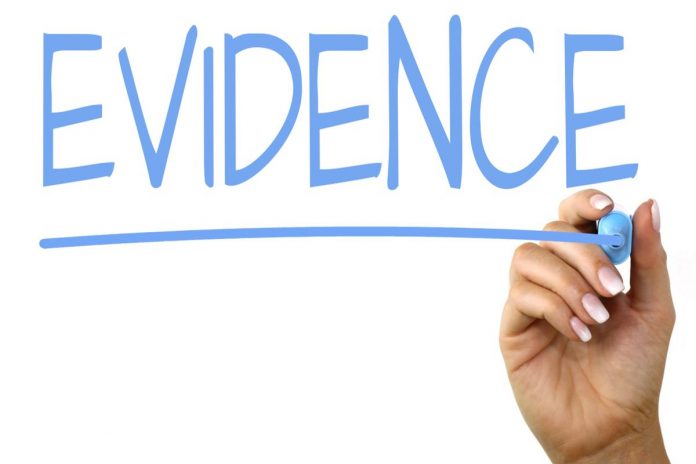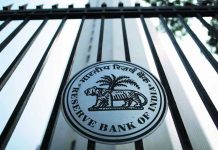This article has been written by Oishika Banerji of Amity Law School, Kolkata. This article discusses the concept of ex parte evidence, circumstances under which ex parte evidence can be ordered and remedies available against ex parte acceptance of ex parte evidence.
It has been published by Rachit Garg.
Table of Contents
Introduction
Ex parte is a legal expression that directly translates to “from/out of the party/faction of” (name of party/faction is frequently omitted), denoting “on behalf of (name).” Ex parte refers to a legal procedure brought by one party without the opposing party’s presence, representation, or notice. The phrase is often used more loosely to describe improper, one-sided interactions with a court, arbitration, or party that is being represented without informing the other party or its legal representative. Ex parte evidence, therefore, signifies the collection and examination of the evidence of only one party to the dispute before the adjudicating authority thereby abstaining the other from presenting the same. Often judicial decisions are also reached by means of ex parte evidence. This article aims to highlight the same, thereby also discussing whether ex parte collection of evidence stands against the established principles of natural justice or not.
What is an ex parte evidence
When a petitioner presents their evidence in the form of documents, photographs, or witnesses who can attest to the relevant facts, the court first permits their presentation before evaluating all of it in accordance with the evidence laws and rendering a decision on the basis of that evaluation.
After the case has been resolved ex parte, the party against whom the ex parte order was made may appeal the decision to a higher court. Even if the defendants fail to appear, the court will decide the case on merits.
The Supreme Court has ruled that an ex-parte decree, which can be annulled in accordance with Order 9 Rule 13 of the Code of Civil Procedure, 1908 (CPC), is one that was issued after the plaintiff’s evidence was taken into consideration but before the defendant had appeared at the trial stage. The observation was made in the case of G. Ratna Raj by Lrs v. Sri Muthukumarasamy Permanent Fund Ltd. (2019), which was an appeal against a High Court’s decision that set aside a preliminary decree under Order 9 Rule 13 CPC, and the ruling was made by a bench of Justice A M Sapre and Dinesh Maheshwari.
The plaintiff was present when the suit was called on for hearing, but the defendants were not present despite service of summons, so the trial court proceeded to hear the suit ex parte by using Order 9 Rule 6 (a) in terms of Order 17 Rule 2 of the Code. As a result, the trial court issued the preliminary decree. When the case reached the Supreme Court, it opined that this decree did qualify as an “ex parte decree” under Order 9 Rule 6(a) read in conjunction with Order 9 Rule 13 of the Code and might, thus, be revoked in accordance with Order 9 Rule 13 upon the establishment of a valid ground by the defendants.
Circumstances when ex parte evidence is relied on
- In accordance with Order 17, Rule 2 of CPC, a court may proceed to resolve the case in any of the ways listed in Order 9 in the event that a party to the suit does not present. The Explanation to Rule 2 states that the court may continue with the case’s resolution if any party’s evidence or a significant amount of the evidence presented has been recorded and the opposition party has failed to appear.
- Instances such as when a party defaults in providing evidence or witnesses, or in carrying out any conduct required for the progress of the suit for which time was given, are covered under Order 17, Rule 3 of CPC. If the parties are present in such situations, the court may proceed to consider the case despite the default (Rule 3(a)). If one or more parties are not present, the court may proceed according to the instructions listed under Order 9’s Rule 3(b).
- Order 9 Rule 6(a) specified that in the absence of the defendant, the court may proceed with the suit ex-parte, if the defendant has been duly served with the notice to appear.
Is ex parte administration of evidence valid
In order to understand the validity of ex parte evidence, precedents need to be looked into as have been discussed hereunder.
In the case of G.N.R. Babu @ S.N. Babu v. Dr. B.C. Muthappa (2022), the Supreme Court noted that the defendant (who had not submitted an application in accordance with Order 9 Rule 13 CPC) may contend that the ex parte proceedings against him were inappropriate while contesting the ex parte decree through an appeal. The bench was made up of Justices Ajay Rastogi and Abhay S. Oka, who noted that a defendant cannot argue that the judgement ordering that the matter proceed ex parte was invalid or wrong until the motion submitted by the defendant under Rule 13 of Order 9 of CPC stands dismissed.
Therefore, in reference to the above judgement, it can be said that the defendant cannot argue in the appeal against the ex parte decree that the order directing the suit proceed ex parte was illegal, until the application made by the defendant under Rule 13 of Order 9 of CPC is dismissed. The appellant can always point out from the trial court’s record that the order passed to proceed with the suit ex parte against him was illegal. The appellant can always argue based on the suit record that either the suit summons was not served upon him or that the trial court was not justified in proceeding ex parte against him despite the fact that he would not be permitted to lead evidence in appeal for establishing a sufficient reason for his absence before the trial court.
In Shah Bharat Kumar Premchand’s case (1979), the Full Bench of the Gujarat High Court had stated that Order 9 Rule 13 CPC empowers a Court to set aside an ex parte judgement against the defendant if the court is convinced that the summons was not properly served or the defendant was prevented from appearing when the suit was called out for hearing. The Court may annul the ex parte decree if it is satisfied. The evidence that has already been recorded is not deleted from the record when the ex parte decision is set aside. In order to give the defendant the opportunity to act as he would have if he had been present on the date the suit was called out in his absence, the decision setting aside the decree has the legal effect of returning the defendant to the pre-ex parte status. The obvious goal is to protect the defendant from prejudice given that he cannot be held accountable for not being present on the day the case was undergoing an ex parte hearing.
According to the same decision, there is no legal justification in Order 9 Rule 13 CPC or any other provision of the Code for maintaining that the evidence gathered before the ex parte decision was set aside would cease to exist or even exist in the eyes of the law. Nothing in Section 33 of the Evidence Act, 1872, prohibits the use of such evidence. When the witness is made available to the defendant for cross-examination and he is given the opportunity to do so, the principle underpinning Section 33 is actually respected rather than broken. Even when the defendant declines to take advantage of the chance to be cross-examined or is not present, the aforementioned Section does not additionally call for re-recording of the evidence.
To summarise the two precedents discussed above, ex parte evidence is valid if the court of law accepts it with a discerning mind and reasoning.
Remedies against ex parte acceptance of evidence
It is ideal to note that the remedies that are available with regard to an ex parte decree will ipso facto (by the fact itself) be applicable in the ex parte acceptance of evidence because, without the admission of evidence, a decree cannot be reached.
An application under Order 9, Rule 13 of CPC, 1908
When setting aside an ex-parte decree, according to Order 9 Rule 13, the defendant may apply to the court by which the decree was passed for an order to set it aside. If the court is satisfied that the summons was not properly served or that the defendant was prevented from appearing when the suit was called on for hearing, the court may make such an order setting aside the decree against him as it thinks fit and shall appoint a day for proceeding with the suit.
Two justifications are listed in Order 9, Rule 13, for overturning an ex-parte decree:
- Whether the summons was not properly served:
- According to Order 5 Rule 19 (issue and service of summons, examination of serving officer), a court is required to record a declaration of due service prior to conducting ex parte proceedings. When there is insufficient evidence to demonstrate that Order 5 Rules 13 (service on agent through whom the defendant does business) and Order 5 Rule 20 (substituted service) were properly followed, the decree should be overturned. If the summons was not properly served, the subsequent proceedings would be void.
- According to the requirements of the Code dealing with summons service, due service is defined as service that occurs in a manner that effectively notifies the defendant of the claim, in good time for the defendant to appear, and at the correct address.
- According to the proviso, if the court determines, for reasons to be recorded, that despite the irregularity, the defendant had knowledge in sufficient time to appear on that date and respond to the claim, an ex parte decree will not be annulled on the basis of irregularity in the service of the summons.
- There was good reason for the defendant to be excused from showing up when the case was summoned for hearing:
The decree must be annulled when good cause is demonstrated. Each case must be evaluated in light of its unique circumstances, and where non-appearance is not intentional, a strict view should not be taken to throw a party out of court. The term “sufficient cause” is not susceptible to an exact definition, and no hard and fast rule can be established to cover all possible cases. The phrase “sufficient cause” refers to circumstances that are outside of a party’s control and do not include grave negligence.
If either of these requirements is met, the court must annul the decree; if neither of these requirements is met, the decree cannot be annulled.
After notice had been served in the case of Gayathri v. Ramesh (1993), the respondent/husband did not appear before the court of law. He was then adjudicated ex parte. The case was made available for ex parte testimony. In this case, the petitioner filed an affidavit certifying to certain conditions and pleading for support. The petition was denied by the learned trial court after it determined there was no basis for granting maintenance without recording any supporting documentation. The Karnataka High Court received an appeal filed against the family court ruling. The High Court opined that the family court cannot immediately place the party ex parte and proceed as in a civil issue if the party against whom the court is proposing to order maintenance payment is not present. In accordance with the proviso to subsection (2) of Section 126 of the Code, the matter can only be decided ex parte when it is determined that the person is purposely avoiding service or has been purposely absent from court.
Does setting aside an ex parte decree signifies setting aside evidence recorded before passing that decree?
Ex parte decrees according to Order 9 Rule 13 CPC do not imply the removal of previously filed material from the record. It has the legal effect of returning the defendant to their pre-ex parte position. The obvious goal is to prevent any harm to the defendant when the ex parte decree is overturned. When the ex parte order is overturned, he should be given the opportunity to pursue all of his options, had he been present on the day the ex parte hearing took place.
Any harm done to the defendant is undone if the defendant is given the chance to cross-examine the witnesses whose testimony was taken in his absence and is permitted to raise the issue of the admissibility of a document and request its re-exhibition if a document was admitted by the court but was inadmissible as evidence. Demanding that the main examination, which was recorded while the defendant was not present, be recorded again will be useless. The ex parte decree may be set aside under Order 9 Rule 13 CPC.
However, nothing in the cited provision states that the proceedings that took place in the defendant’s absence are null and void or that the evidence already recorded becomes non-existent by overturning the ex parte decree, subject to the erasure of any harm caused to the defendant, as previously stated, that is, subject to his right to cross-examine the witness whose testimony was recorded in his absence and/or to contest the admissibility of the document.
The entire observation has been viewed by several courts over time, the most notable being the Karnataka High Court in the case of Ramesh Patil v. Lakshamma (1993).
Appeal under Section 96 of CPC, 1908
An ex parte initial judgement may be appealed. Any court order may be appealed, barring any stated provisions to the contrary. If the lawsuit’s value is less than Rs. 10,000, an appeal may only be made on a legal issue when an ex-parte appeal is allowed after a judgement has been rendered against the defendant. The decision of the majority shall apply in situations presided over by two or more judges. If there isn’t a majority, the lower court’s ruling will be upheld.
A review application under Section 114 of CPC, 1908
Subject to the aforementioned, anyone who feels wronged-
- By a judgement or order from which an appeal is permitted under this Code but which has not yet been filed,
- By a judgement or order from which there is no right of appeal under this Code, or
- By decision following a referral from a court of small causes,
may apply to the court that issued the decree or order for a review of the judgement, and the court may issue any order it deems appropriate thereon.
If the prerequisite conditions outlined in Section 114 are met, the court is essentially given the authority to reconsider its order. The substantive law does not specify any restrictions on the court’s authority other than those that are specifically stated in Section 114 of the Code, which gives it the authority to issue any orders it sees fit. In another case named Kaptur Agro Forest Enterprises v. Union of India (2002), the issue of the concession in relation to an overhead charge was resolved in the earlier writ suit by the allotters, and the Supreme Court likewise denied the special leave petition.
Conclusion
As far as ex parte recording of evidence is concerned, courts must use their authority judiciously so that prejudice is not caused to the interests and rights of the defendant. Keeping in mind the celebrated principle of natural justice, the right to a fair hearing and the right to provide an opportunity for both parties to the dispute to be heard must be of supreme importance, even when ex parte evidence is collected and the case proceeds ex parte.
Students of Lawsikho courses regularly produce writing assignments and work on practical exercises as a part of their coursework and develop themselves in real-life practical skills.
LawSikho has created a telegram group for exchanging legal knowledge, referrals, and various opportunities. You can click on this link and join:
Follow us on Instagram and subscribe to our YouTube channel for more amazing legal content.
 Serato DJ Crack 2025Serato DJ PRO Crack
Serato DJ Crack 2025Serato DJ PRO Crack












 Allow notifications
Allow notifications


